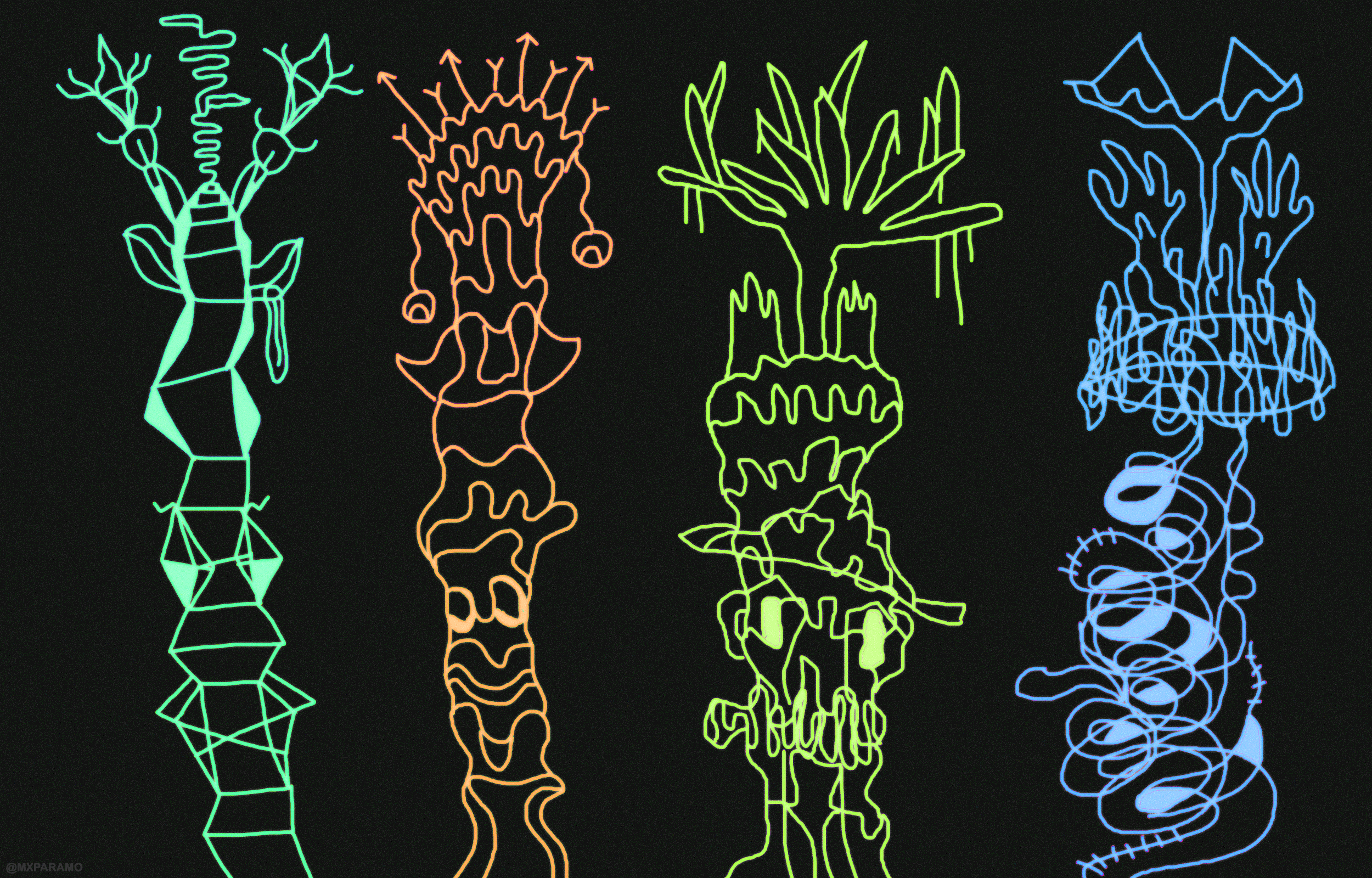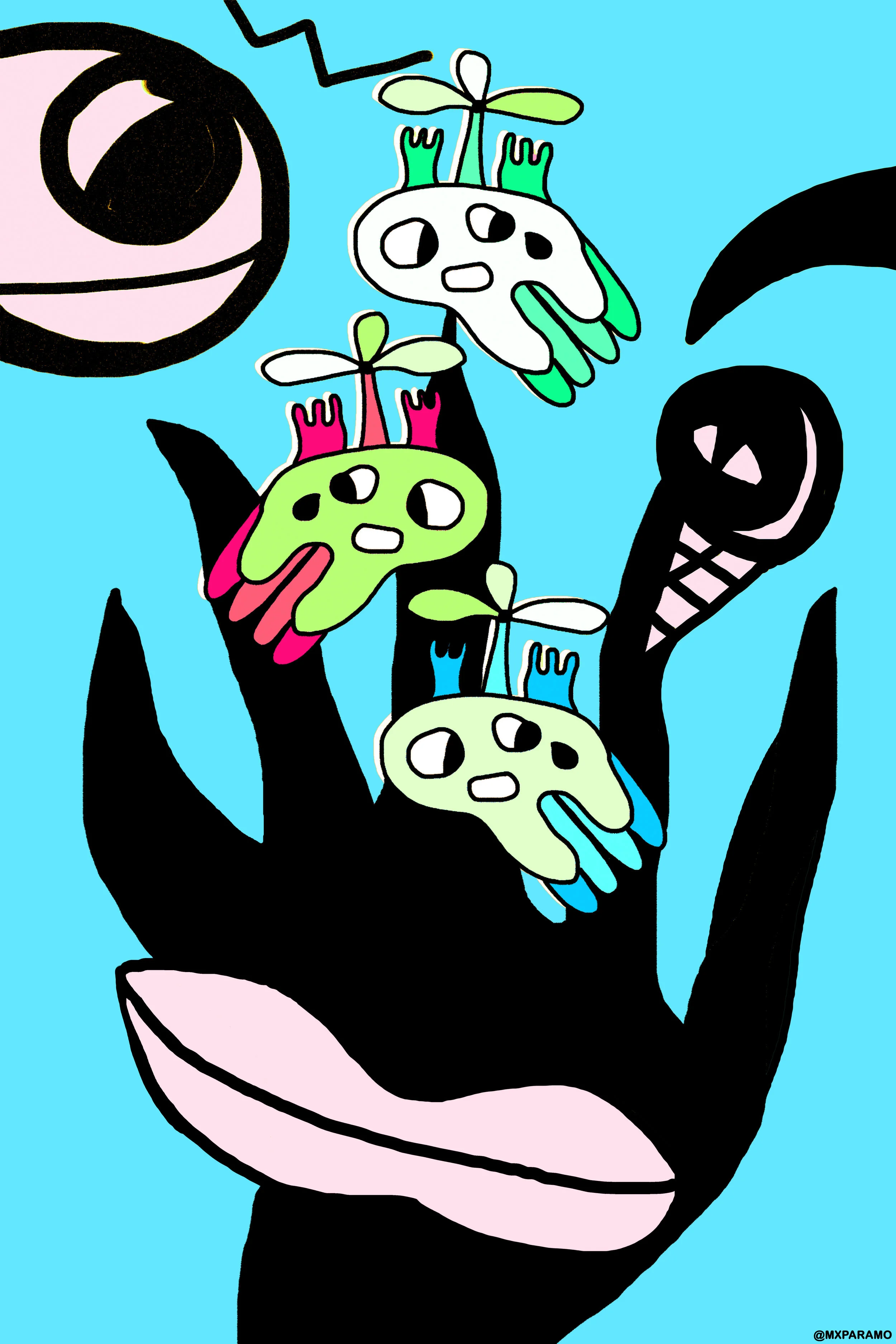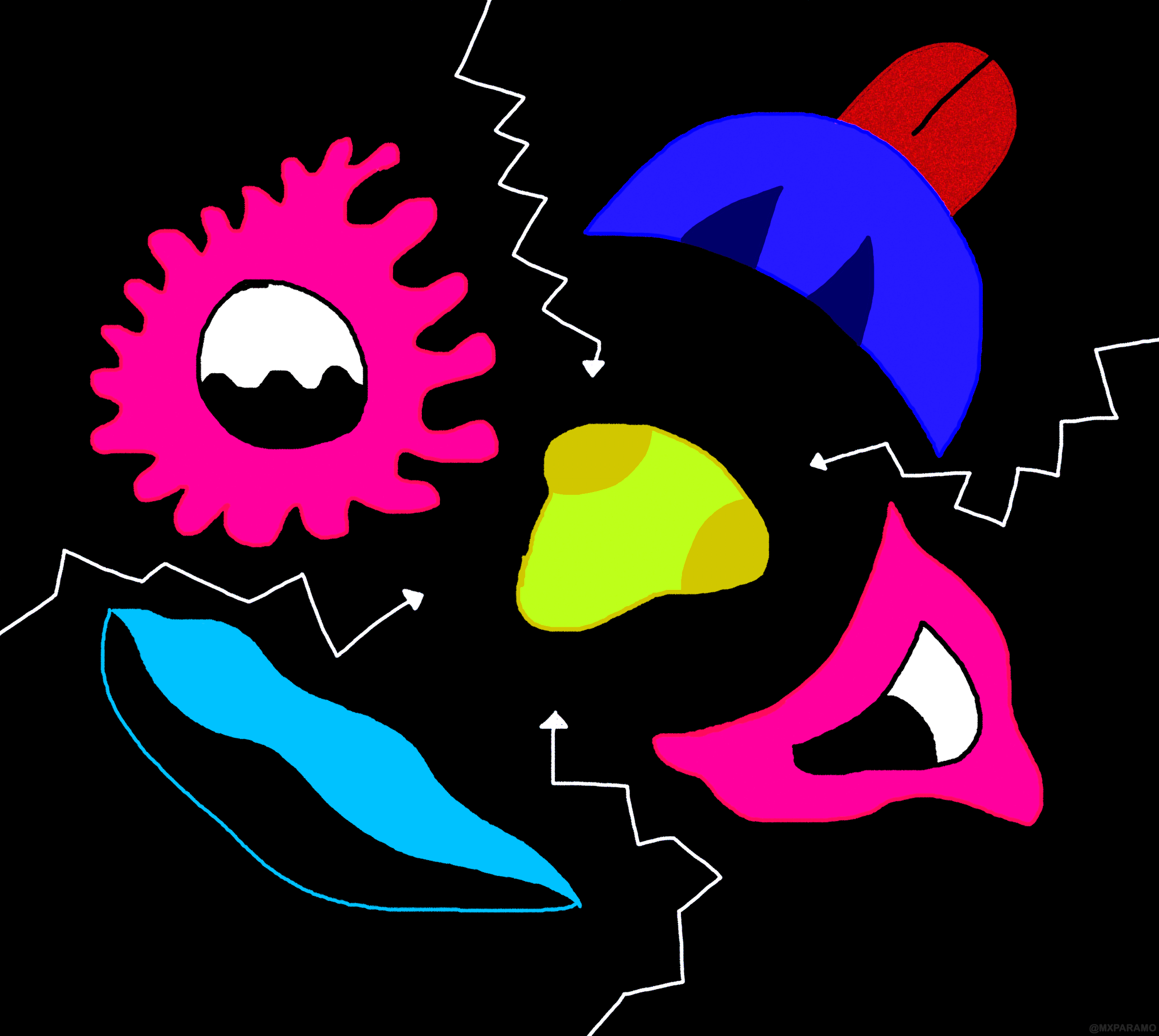Seven Steps
(cn: internalised amisia in IV)
I.
Sometimes, when someone enters your life and you like them, a feeling will emerge from somewhere inside you.
It's a feeling that wants, and it's a feeling that fears.
You crave intimacy, and you wish to grow closer. You want to cuddle and kiss, and you want to share moments.
Maybe you'll even want to have sex.
(Sex in the way you define it, at least.)
You want to learn more. You want to explore.
You want to lean in.
It's the
physical sensation of ants running through your body, everything is tingling. You're feeling light, like you might fly away any moment, and something, something, presses against your chest.
And you're scared, but it's the good scared.
Because everything is new and everything is unsure and
reaching for a hand could mean so much
and so little
and you don't yet know where the boundaries lie.
It's the fear excitement brings, and that's what you are: excited.
You are excited,
because you are in love.
II.
Sometimes, when you go about life, a feeling known too well will hit you.
Your mum once asked you when you started to be that way, but as far as you're concerned, anxiety has always been there with you.
It's a feeling that fears, and a feeling that panics, and a feeling that makes you overthink everything you've ever done.
An unsettling nervousness.
It's your first ever university class, English Culture, and the professor raises a question: in what way do language and culture relate?
You want to respond, you want to engage,
(different languages and communities will have words for different concepts
having a word for a concept wills it into existence)
and your legs can't keep still.
Anxiety
noun, /aŋˈzaiəti/ , plural: anxieties
The physical sensation of ants running through your body, everything is tingling. You're feeling light, like you might fly away any moment, and something, something, presses against your chest.
It's almost hurtful, the way it restrains you.
(It doesn't always restrain you.)
Sometimes, it provides a constant, too.
III.
It's funny, isn't it, how in German the word for excited is the same as the word for nervous:
aufgeregt
IV.
You're excited, you tell yourself,
because you're in love.
You're in love, you tell yourself,
because everyone falls in love at some point,
and if this isn't it, then what else could it be?
It's only natural for you to crave romance,
the same way it's natural for people to crave sex
(you're asexual)
and you know that aromantism exists
(just not for you)
After all,
when holding hands makes you feel good, and talking about your girlfriend offers a home,
when reading about couples makes you happy,
when romance is the only thing you write about
-
you might be queer and weird and unable to sit still, but at the very least, you remain normal
in this essential regard.
V.
You've stumbled upon this term,
relationship anarchy
and you don't understand what it means quite yet, but something about it drew you in.
You've felt restrained by relationship labels for a long time,
because they didn't make sense to you
because you're pan and ace and polyam,
and those labels were never for you in the first place
because of the expectations these labels bring
(expectations you knew you'd never meet)
because of the implied hierachy imposed on people in your life
because they just. didn't make sense to you.
And this is the conclusion you drew.
You still have a girlfriend, and it feels right.
VI.
How do you know you're something,
when the only indication is a lack of things you've never experienced?
VII.
You're aromantic.
You're aromantic and you wonder how it could take this long for you to realise,
when everything has pointed towards it so clearly.
(You know why it took you so long.)
Because even when you started to suspect it, you didn't want to see.
Of all the queer identities,
you're trans and polyam and ace and pan and genderqueer
nothing took you so long to come to terms with as being aromantic did.
You wonder:
how could you think of fear and excitement as the same?
and how has it never even occured to you that being a relationship anarchist is a choice
not inherently linked to feeling alienated
But you're here now.
You're aromantic and you're proud.
You're aromantic, and most importantly:
you've never felt as free.





